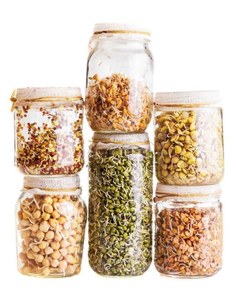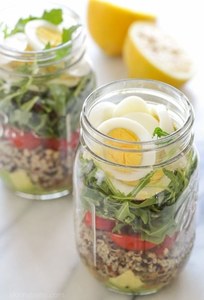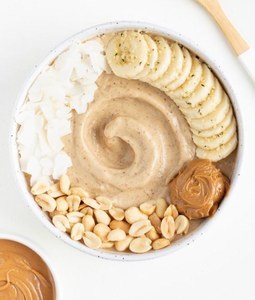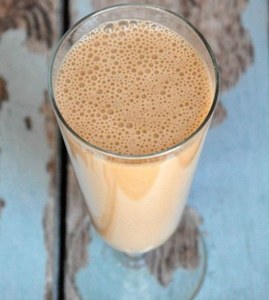Protein is an important component which is essential to our being. Through our diet we can incorporate this source of healthy eating and stay active! Although mostly associated with muscle mass, shakes and gymming, the benefits and significance of protein is so much more than meets the eye!
The Power of Protein
It's straightforward energy. Protein is a significant part of each cell in the body. Hair and nails are, for the most part, are made of protein. Your body utilizes protein to fabricate and fix tissues. You likewise use protein to make compounds, hormones, and other body synthetic concoctions. Protein is a significant structure square of bones, muscles, ligament, skin, and blood.

Alongside fat and sugars, protein is a "macronutrient" - implying that the body generally needs a lot of it. Nutrients and minerals, which are required in just little amounts, are classified "micronutrients", but not at all like fats and starches, the body doesn't store protein, and in this manner has no repository to draw on when it needs another flexibly. So you may expect the arrangement is to eat protein throughout the day. In all actuality, we need less complete protein that you may think. Yet, we could all profit by showing signs of improvement food sources.
A Sufficient Amount of Protein?
We've all heard the legend that additional protein means more muscle. Truth be told, the best way to assemble muscle is through exercise. Bodies need a humble measure of protein to work well. Additional protein doesn't invigorate you more than necessarily. As per the U.S. Division of Health and Human Services: Adolescent young men and dynamic men can get all the protein they need from three day by day servings for an aggregate of seven ounces. For kids age 2 to 6, most ladies, and some more seasoned individuals, the legislature suggests two every day servings for an aggregate of five ounces. For more established youngsters, teenager young ladies, dynamic ladies, and most men, the rules give the gesture to two day by day servings for a sum of six ounces. Each and every individual who eats an eight-ounce steak regularly served in cafés is getting more protein that their bodies need. Besides they're getting a weighty measure of vein stopping up immersed fat too.
The Drawbacks of High-Protein Diets
Many people who have jumped on the high-protein/low-carb bandwagon think that they can pack away as much protein as they like. But nutrition experts urge caution. The reasons why have to do with how high-protein/low-carb diets are thought to lead to weight loss. When people eat lots of protein but few carbohydrates, their metabolisms change into a state called "ketosis". Ketosis means the body starts burning carbs for fuel to burning its own fat. When fat is broken down, small bits of carbon called ketones are released into the bloodstream as energy sources. Ketosis, which also occurs in diabetes, tends to suppress your appetite, causing people to eat less, and it also increases the body's elimination of fluids through urine, resulting in a loss of water weight.
Christopher D. Gardner, PhD, Assistant Professor of Medicine at Stanford University, tells WebMD that high-protein diets like the Atkins regimen may trade short-term benefits for long-term health consequences. Among the risks: The body produces ammonia when it breaks down protein. No one knows the long-term risks of higher levels of ammonia in the body.
Also, there is evidence to suggest that people who eat high-protein diets typically excrete excess calcium, says Deborah Sellmeyer, MD, assistant Professor of Medicine and Director of the Center for Osteoporosis at the University of California at San Francisco. This suggests that the body is releasing stores of calcium into the bloodstream to counteract an increase in acids caused by protein consumption (calcium buffers, or neutralizes, acids). Too much calcium loss could lead to osteoporosis down the road, Sellmeyer says.

Lastly, there are the obvious concerns. Carbohydrate foods shunned by some people on low-carb diets include fruits and vegetables, which are the best sources for vitamins, fiber, and antioxidants -- nutrients that help prevent disease. By contrast, animal foods that are high in protein are usually also high in saturated fats, which increase the risk for heart disease, stroke, diabetes, and several types of cancer.
The American Heart Association warns:
"Reducing consumption of [carbs] usually means other; higher-fat foods are eaten instead. This raises cholesterol levels even more and increases cardiovascular risk."
The AHA also notes that by concentrating on protein sources and skipping carbs, dieters may be getting too much salt and not enough calcium, potassium, or magnesium, which are typically found in fruits, vegetables, and whole grains.
Pick Your Proteins Wisely
The kind of protein you eat may assume a job in effective weight reduction and in your general well-being. Utilization of enormous amounts of prepared meats, for example, hot-dogs, and store meats, have been connected to expanded danger of type 2 diabetes, cardiovascular sickness, and colo-rectal disease. You'll make some harder memories keeping up weight reduction on the off chance that you eat these proteins frequently, and you might be harming your body. Sustenance specialists suggest getting dietary proteins from sources such as:

"A great deal of plant-based nourishment's like soy and vegetables can give you a similar measure of protein as meats. I have nuts for breakfast each day, since they give you a great deal of protein, however they're solid wellsprings of fat," sustenance specialist, Hu, says. So when you choose to cut carbs and lift protein, accept Hu's recommendation: Don't dismiss the master plan!
Protein is a supplement your body needs to develop and fix cells and to work appropriately. Protein is found in a wide scope of food and it's significant that you get enough protein in your eating regimen consistently. How much protein you need from your eating routine fluctuates relying upon your weight, gender, age and well being. Meeting your protein needs is effortlessly accomplished from eating an assortment of nourishment's. Protein from food originates from plant and creature sources, for example, meat and fish, eggs, dairy items, seeds and nuts, and vegetables like beans and lentils.
Nutritional Value of Protein
The nutritional value of a protein is measured by the quantity of essential amino acids it contains.Different foods contain different amounts of essential amino acids. Generally:Animal products (such as chicken, beef or fish and dairy products) have all of the essential amino acids and are known as 'complete' protein (or ideal or high-quality protein). Soy products, quinoa and the seed of a leafy green called amaranth (consumed in Asia and the Mediterranean) also have all of the essential amino acids.Plant proteins (beans, lentils, nuts and whole grains) usually lack at least one of the essential amino acids and are considered 'incomplete' proteins.

People following a strict vegetarian or vegan diet need to choose a variety of protein sources from a combination of plant foods every day to make sure they get an adequate mix of essential amino acids. If you follow a vegetarian or vegan diet, as long as you eat a wide variety of foods, you can usually get the protein you need. For example, a meal containing cereals and legumes, such as baked beans on toast, provides all the essential amino acids found in a typical meat dish.
9 best protein foods to eat before bed to get better sleep:
Other Foods That May Promote Sleep

Several other foods have sleep-promoting properties, but they have not been studied specifically for their effects on sleep.
Protein Improves Your Sleep-Cycle:
Foods rich in protein and carbohydrates can make people feel sleepier than other foods. Some researchers believe that a person feels tired after eating because their body is producing more serotonin. An amino acid called tryptophan, which occurs in many protein-rich foods, helps the body produce serotonin. The more calories you get from sugars and saturated fats, the more likely you are to experience sleep disturbances. On the other hand, diets high in fiber and protein seem to help you fall asleep and stay asleep throughout the night.
The key to super-charging your weight loss and slipping into sounder, more restorative sleep at night is protein, protein, and more protein, according to new research from Purdue University.
“Most research looks at the effects of sleep on diet and weight control, and our research flipped that question to ask what are the effects of weight loss and diet—specifically the amount of protein—on sleep,”
Wayne Campbell, the author of the study, said at a press release. “We found that while consuming a lower calorie diet with a higher amount of protein, sleep quality improves for middle-age adults. This sleep quality is better compared to those who lost the same amount of weight while consuming a normal amount of protein.”
Protein Shakes, Powders and Supplements
Protein shakes, powders and supplements are unnecessary for most peoples' health needs. According to the most recent national nutrition survey in Australia, 99% of Australians get enough protein through the food they eat. Any protein you eat on top of what your body needs will either be excreted from your body as waste, or stored as weight gain.

The best way for you to get the protein you need is to eat a wide variety of protein-rich foods - as outlined in the Australian Dietary Guidelines, and as a part of a balanced diet. But if you are still interested in using protein shakes, powders and supplements, talk to your doctor.
Protein and Exercise
Not long after working out, it's suggested that you have a serve of top notch protein, (for example, a glass of milk or tub of yogurt) with a starch dinner to help keep up your body's protein balance. Studies have demonstrated this to be beneficial for you, considerably after low to direct oxygen consuming activity, (for example, strolling), especially for more seasoned grown-ups.

Individuals who are more active or are attempting to gain bulk don't have to expend additional protein. High-protein meals include less carbs and don't prompt expanded bulk. It's the incitement of muscle tissue through exercise, not additional dietary protein, which prompts muscle development. Studies show that weight-coaches who don't eat additional protein (either in food or protein powders) despite everything, gain muscle at a similar rate as weight-mentors who supplement their eating regimens with protein.
The Bottom Line
Getting enough sleep is very important for your health. Fortunately, several foods may help, thanks to their content of sleep-regulating hormones and brain chemicals, including melatonin and serotonin. Additionally, some foods contain high amounts of specific antioxidants and nutrients, such as magnesium, that are known to enhance sleep by helping you fall asleep faster or stay asleep longer.To reap the benefits of sleep-enhancing foods, it may be best to consume them 2–3 hours before bed. This is because eating immediately before going to sleep may cause digestive issues, such as acid re-flux.

Overall, more research is necessary to conclude the specific role that foods have in promoting sleep, but their known effects are very promising.